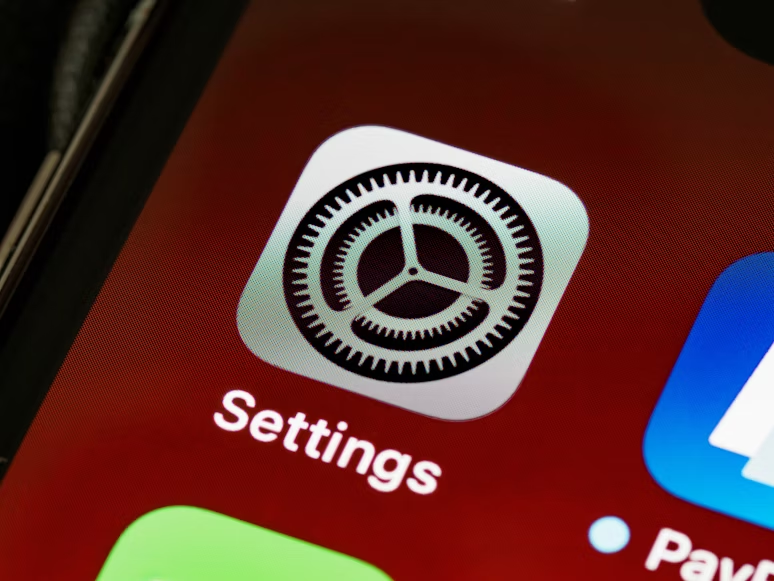Table of Contents
- A Brief History of iOS
- Apple iOS 26 Release Date
- Top New Features in iOS 26
- Liquid Glass: The Future of Display
- Security and Privacy Enhancements
- Performance and Battery Life
- Impact on Developers
- Gaming and Graphics
- Integration with Apple Vision Pro and AR
- Comparison: iOS 18.7 vs iOS 25 vs iOS 26
- macOS 26 and Cross-Platform Features
- iOS 26 iPhone Compatibility
- Frequently Asked Questions (FAQ)
- Summary and Key Takeaways
- External Resources

A Brief History of iOS
To understand the significance of iOS 26, we need to look back at how far iOS has come since its debut in 2007. The first version of iOS (then called iPhone OS) introduced the concept of a full touchscreen smartphone without physical keyboards. Over time, Apple refined the system with:
- iOS 4: Multitasking support
- iOS 7: Major UI redesign with flat design
- iOS 12: Performance improvements and Screen Time
- iOS 14: Home screen widgets and App Library
- iOS 18.7: Stability and long-term support for older devices
- iOS 25: AI integration and Universal Control
Now, with iOS 26, Apple is introducing groundbreaking innovations such as Liquid Glass and deeper cross-platform integration with macOS.
Apple iOS 26 Release Date
Following Apple’s traditional schedule, iOS 26 is expected to be announced during the WWDC 2026 keynote. The developer beta will likely be released immediately after the announcement, with a public beta in July 2026 and a full public release in September 2026 alongside the iPhone 17 lineup.
Top New Features in iOS 26
Here are the most exciting features coming in iOS 26:
- Liquid Glass Interface: A dynamic, adaptive visual system that changes transparency based on environment.
- Siri 2.0 (AI-driven): Offline commands, smarter contextual responses, and deeper integration with apps.
- Health & Wellness Suite: Expanded sleep tracking, hydration monitoring, and mental health insights.
- Universal Control+: Improved cross-device workflows with macOS 26.
- Privacy Dashboard 2.0: More granular control of app permissions and data usage.
- Battery AI Management: Smarter charging patterns to extend long-term battery health.
- Advanced Camera Tools: AI photo editing, cinematic filters, and real-time background replacement.
Liquid Glass: The Future of Display
One of the most talked-about features of iOS 26 is Liquid Glass. This technology is expected to revolutionize how displays interact with lighting conditions. Unlike traditional OLED or Mini-LED panels, Liquid Glass dynamically adjusts transparency, giving users an immersive experience. Imagine your phone blending seamlessly into your surroundings while enhancing readability outdoors.
Security and Privacy Enhancements
Apple has always emphasized user privacy, and iOS 26 takes it to the next level:
- Biometric authentication for individual apps
- Enhanced two-factor authentication methods
- Improved VPN integration with iCloud Private Relay
- Compliance with GDPR and upcoming global privacy standards
Performance and Battery Life
iOS 26 is expected to run faster than ever, thanks to Apple’s A20 Bionic chip. Benchmarks suggest a 25% speed boost compared to iOS 25. Battery life will also improve with AI-based charging cycles, predicting user habits and optimizing charging to reduce battery degradation.
Impact on Developers
For developers, iOS 26 introduces new APIs and tools in Xcode and Swift. Notable changes include:
- New ARKit 7 for advanced augmented reality
- Expanded SwiftUI components
- Machine Learning integration with CoreML 5
- Better debugging and performance tools

Gaming and Graphics
Gaming will benefit from Metal 5, which provides near-console quality graphics on iPhone. Apple Arcade is also expected to expand with exclusive titles optimized for iOS 26.
Integration with Apple Vision Pro and AR
With the release of Apple Vision Pro, iOS 26 will bring deeper AR and mixed reality integration. Apps can seamlessly switch between iPhone and Vision Pro, creating new opportunities for productivity, gaming, and entertainment.
Comparison: iOS 18.7 vs iOS 25 vs iOS 26
| Feature | iOS 18.7 | iOS 25 | iOS 26 |
|---|---|---|---|
| AI Integration | Basic | Moderate | Advanced with offline Siri |
| UI Design | Classic | Refined | Liquid Glass visuals |
| Privacy | Standard | Improved | Privacy Dashboard 2.0 |
| Performance | Stable | Fast | Faster with A20 Bionic |
| Cross-Device | Basic | Universal Control | Universal Control+ |
macOS 26 and Cross-Platform Features
macOS 26 will be released alongside iOS 26. The new macOS will include tighter integration with iPhones, improved Universal Control+, and synchronized AI assistants. Apple is clearly moving toward a unified ecosystem where your devices work as one.
iOS 26 iPhone Compatibility
Expected supported devices include:
- iPhone 14 and later
- iPhone SE (3rd Gen and newer)
- Upcoming iPhone 17 lineup
Frequently Asked Questions (FAQ)
When will iOS 26 come out?
Expected September 2026 after the iPhone 17 announcement.
Is iOS 26 out?
No, as of September 2025, iOS 26 is still under development.
What is Liquid Glass?
It is Apple’s new display technology designed for adaptive transparency and immersive visuals.
Which iPhones will get iOS 26?
iPhone 14 and later, including iPhone SE (3rd gen).
How does iOS 26 compare to iOS 25?
It offers more advanced AI, Liquid Glass, and Universal Control+ for better device integration.
Will iOS 26 improve battery life?
Yes, through AI-powered charging optimization.
Does iOS 26 have better privacy?
Yes, with Privacy Dashboard 2.0 and biometric app locks.
Is iOS 26 developer-friendly?
Absolutely — with new APIs, ARKit 7, and CoreML 5.
Summary and Key Takeaways
iOS 26 is shaping up to be Apple’s most ambitious update ever. With Liquid Glass, offline Siri, enhanced security, AR integration, and Universal Control+, it sets a new benchmark for mobile operating systems.



